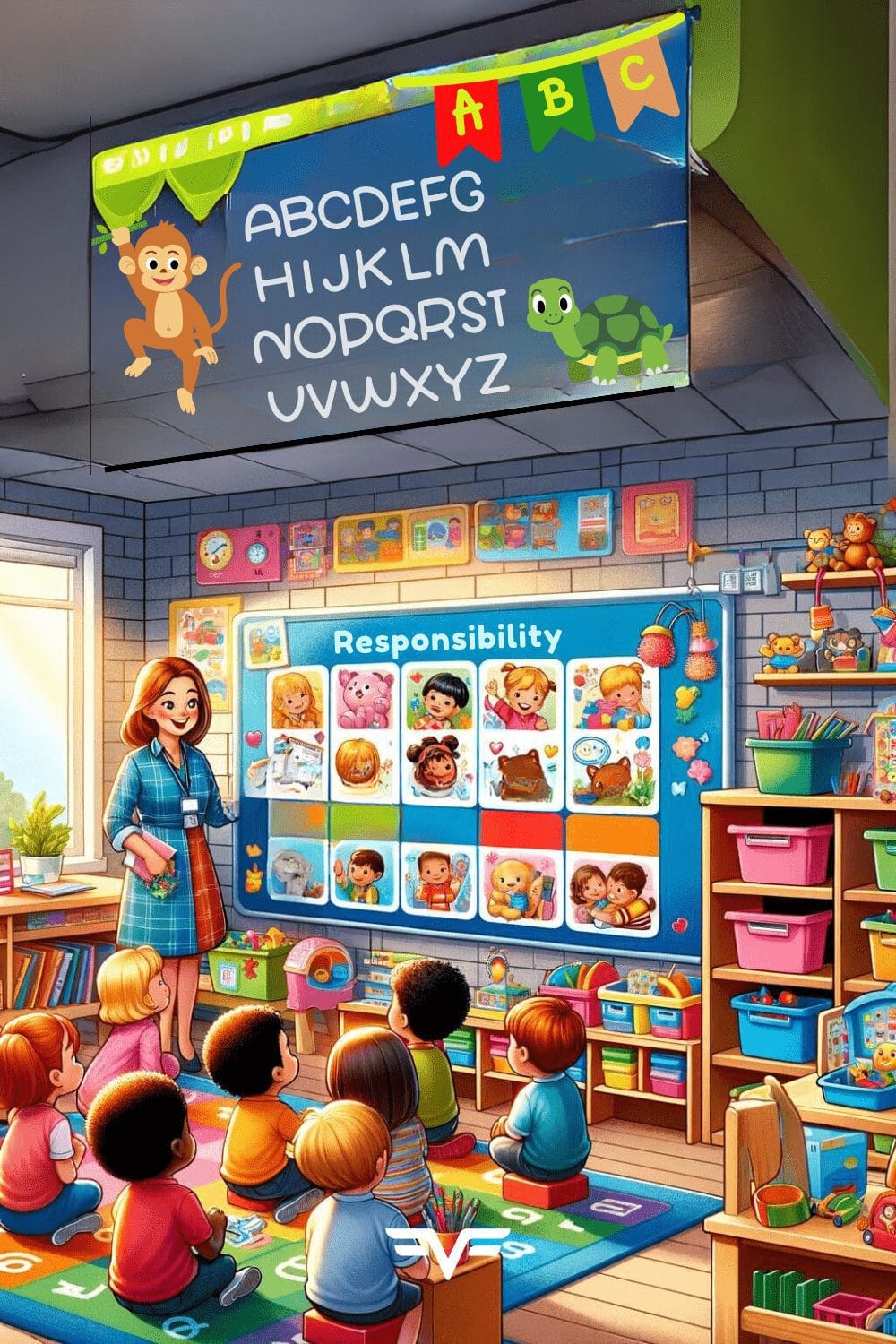Nurturing tomorrow's heroes Today!
Character Chronicles
Responsibility
Index
Introduction
As parents, we all want to raise responsible, self-sufficient children who can navigate the world and contribute positively to society. But teaching responsibility can be a challenge, especially with young kids who are still learning about the world around them. How do we instill this important value in our children in a way that makes sense to them?
In this post, we’ll explore the biblical basis for responsibility, provide practical tips for teaching it to kids in different age groups, and give you some ideas for putting it all into practice. By the end, you’ll have a better understanding of how to help your child develop this vital life skill.


What is Responsibility?
At its core, responsibility is about being accountable for our actions and choices. A responsible person considers the consequences of what they do (or don’t do) and is willing to own up to the results, whether good or bad. Responsibility also involves reliability – being someone others can count on to follow through on their commitments.
For children, responsibility might look like:
- Completing chores and homework without being constantly reminded
- Taking care of their personal belongings
- Being truthful, even when it’s difficult
- Admitting mistakes and trying to make amends
- Helping out around the house without being asked
Responsibility is a multi-faceted character trait that serves us well throughout our lives. As parents, we have the privilege and responsibility (no pun intended!) of helping our kids develop this important quality.
Responsibility and the Bible
The Bible has a lot to say about responsibility. In the Creation story, God entrusted Adam and Eve with the care of the Garden of Eden – a clear example of the importance of responsibility. When they failed in that duty, they faced the consequences of their actions.
Proverbs 22:6 tells us to “train up a child in the way he should go, and when he is old he will not depart from it.” This verse highlights our role as parents in shaping our children’s character and habits, including a sense of responsibility.
Jesus often spoke about the importance of faithfulness and accountability. In the Parable of the Talents (Matthew 25:14-30), he commends the servants who responsibly invested the money entrusted to them, and condemns the one who hid it away.
Throughout Scripture, we see that responsibility is closely tied to our relationship with God and our duty to others. As we teach our children about responsibility, we have the opportunity to ground these lessons in biblical principles.


Teaching Responsibility to 5-8 Year Olds
For younger children, the key is to start small and keep things simple. Here are some practical tips:
- Give them age-appropriate chores and consistently follow up to ensure the tasks are completed. This could include making their bed, clearing their plate after meals, or helping with simple cleaning.
- Use a visual aid like a checklist or sticker chart to help them keep track of their responsibilities.
- Praise them when they demonstrate responsibility, to reinforce the behavior.
- If they forget or neglect a responsibility, have them face a logical consequence (e.g. losing screen time) rather than doing it for them.
- Read Bible stories that illustrate responsibility, like the Parable of the Talents, and discuss the lessons.
The goal is to build a foundation of responsibility through repetition and by making it a normal part of their daily routine.
Teaching Responsibility to 9-12 Year Olds
As kids get older, you can start expanding their responsibilities and giving them more autonomy. Some ideas:
- Introduce a regular allowance that they have to manage responsibly (e.g. saving for a larger purchase, donating a portion to charity).
- Have them take on more complex chores like doing their own laundry or cooking a simple meal.
- Encourage them to be responsible for their own schoolwork and extracurricular activities.
- Discuss current events and how individual choices and actions can impact the community.
- Challenge them to come up with creative ways to be responsible at home, school, or in their neighborhood.
The key is to gradually increase the expectations and give them opportunities to practice decision-making and problem-solving related to their responsibilities.


Putting it into Practice
Ultimately, teaching responsibility is an ongoing process that requires patience, consistency, and plenty of encouragement. Here are some tips for putting it all together:
- Model responsibility in your own life. Kids are more likely to emulate what they see rather than just what they’re told.
- Use natural consequences as learning opportunities. If they forget their homework, don’t bail them out – let them face the results at school.
- Involve your children in setting appropriate, age-specific expectations and consequences. This gives them a sense of ownership.
- Celebrate successes, no matter how small. Positive reinforcement goes a long way.
- Pray with your children, asking God to help them grow in this important character trait.
Remember, the goal is not perfection but progress. With time and practice, your kids will develop a solid foundation of responsibility that will serve them well throughout their lives.
Conclusion
Teaching responsibility is one of the most important jobs we have as parents. By grounding these lessons in biblical principles, providing age-appropriate guidance, and consistently reinforcing good habits, we can raise children who are accountable, dependable, and ready to make a positive impact on the world around them. It’s not always easy, but the rewards are immeasurable!

Fuel Your Faith! Join Our Heroic Email List
Unlock Daily Challenges, Hero Training & Faith-Filled Inspiration!


